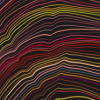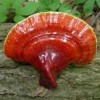wow! i was just reading how expensive PSK is, like in the $1000 and to figure its scam, those people should be shot. imagine how many people spent their savings for this in belief their health will get better and having being lied to!
speaking of scammers, this is another one i will mention. mushroom wisdom! their product Amyloban® 3399 from Lion's Mane is $80, but its absolute turd! of course i didnt pay that damn much for it, it was long time ago on sale so i paid half that BUT regardless the usual price is damn high for something that doesnt work! i chugged shitload of those caps and no effect.
here is what it states to have; Amyloban® 3399 is made from a unique and innovative extract concentrating active compounds from the Lion's Mane mushroom. This extract, called Amycenone® contains amyloban and hericenones shown to support healthy brain function
here are the label ingredients; Ingredients
Lion's Mane (Hericium erinaceus) Fruiting Body Extract, Amycenone®, Standardized to contain 6% amyloban including hericenones 1,950 mg†
realmushrooms, from your recommendation to check labels for % bio-active constituents and extraction methods, this supplement will seem reliable in the case but it did not work at all and im questioning few things in here, LIKE, what the hell is amycenone? i checked and i couldnt find any such patent. the fuck is this bullshit? 6% amyloban?? WTF IS AMYLOBAN? i checked all studies done on lion's mane, using NCBI, there is no existence of amyloban anywhere! wtf is amyloban? someone help me, maybe im just stupid!? does amyloban exist???
Edited by normalizing, 20 January 2016 - 02:48 AM.






















































